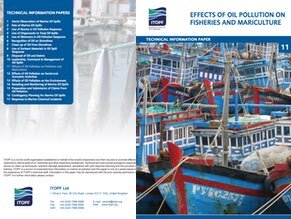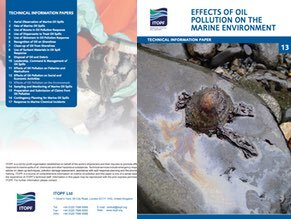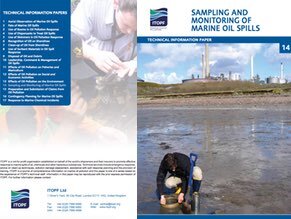Environmental Effects

The effects of oil spills can have wide ranging impacts that are often portrayed by the media as long lasting environmental disasters. Such perceptions are understandable as they are often fuelled by distressing images of oiled birds and other wildlife.
It is true that an oil spill can have severe short term effects, especially when organisms are considered on an individual basis. However, environmental impacts should always be measured in a scientific context and should be appraised at an ecosystem rather than individual level. In other words, it is important (or more representative of long term environmental effects) to base the extent of environmental damage on the effects to ecosystems. For example, has the ecosystem retained its normal functions or how quickly will they resume following an oil spill?
Under normal conditions many of the ecosystems most frequently affected by marine oil spills are accustomed to natural disturbances. For example, shallow coral reefs are some of the most dynamic environments, frequently exposed to the intense forces of typhoons and tsunamis. Disturbances of this nature typically create space for new organisms to settle and grow. In time, natural processes repair damage caused by such events, returning an ecosystem to its previous functions, albeit potentially comprised of different individual organisms. Natural recovery processes are also important in remediating the effects of oil spills. Recovery can be assisted by the removal of oil through well-conducted clean-up operations, and may sometimes be accelerated with carefully planned restoration measures.
How Can Oil Spills Cause Damage to the Environment?
The effects of an oil spill will depend on a variety of factors including, the quantity and type of oil spilled, and how it interacts with the marine environment. Prevailing weather conditions will also influence the oil’s physical characteristics and its behaviour. Other key factors include the biological and ecological attributes of the area; the ecological significance of key species and their sensitivity to oil pollution as well as the time of year. It is important to remember that the clean-up techniques selected will also have a bearing on the environmental effects of a spill.
Oil spills may impact the environment in the following ways:
- Physical smothering of organisms: This is caused by oils with a high viscosity, in other words heavy oils. Smothering will affect an organism’s physical ability to continue critical functions such as respiration, feeding and thermoregulation.
- Chemical toxicity: This is characteristic of lighter chemical components which are more bio-available, ie absorbed into organs, tissues and cells, and can have sub-lethal or lethal toxic effects.
- Ecological changes: This is caused by the loss of key organisms with a specific function in an ecological community. They can be replaced by different species undertaking similar functions in which case the implications for the ecosystem as a whole may not be severe. However, more detrimental is the niche in the community being replaced with organisms performing completely different functions thereby altering the ecosystem dynamics.
- Indirect effects: Loss of shelter or habitat through oiling or clean-up operations.
What Characterises Recovery for the Marine Environment?
Extensive research and detailed post-spill studies have shown that even major oil spills will rarely cause permanent effects.
Marine ecosystems have high natural variability and are subject to ever-changing environmental phenomena such as storms, climatic anomalies (eg El Niño) as well as anthropogenic pressures. Furthermore, marine organisms have varying degrees of natural resilience to these pressures on their habitats. This natural variability means it is unlikely that exact pre-spill conditions will be reached. It makes determining the point of recovery following an oil spill, and the time it will take, difficult to accurately predict.
It is generally accepted that recovery is reached when a community of plants and animals characteristic of that habitat are established and functioning normally.
Explore Documents on Environmental Effects
11 油类污染对渔业和海洋生物养殖的影响
本文将介绍船源性油类污染对渔业和海洋养殖的影响,并就有助于降低油类泄漏影响 之严重性的应对措施和管理策略提供指南。对其它经济资源的破坏在另一篇技术资料 论文中予以讨论。
Categories: Environmental effects, Economic effects, Technical Information Paper (TIPS)
13 油类污染对环境的影响
本文介绍船源性油类泄漏及随后的清理活动对海洋植物群和动物群及其栖息地的影响。 本文特别讨论了油类和生物系统之间复杂的相互作用,多年来的众多研究都以此作为 研究主题。其它 ITOPF 文章对油类对渔业和海洋养殖及更广泛的人类活动的具体影 响进行了讨论。
Categories: Environmental effects, Technical Information Paper (TIPS)
14 海洋油类泄漏的采样和监视
本文广泛地介绍了可用于对油类污染进行定性和定量监视的监视和采样程序。 定性分析可以确认油类污染的来源,而监视计划通常关注的是碳氢物水平长期 的数量变化。本文将就最佳分析做法提供指导,并介绍常用术语。不过,监视 特定生态或生物影响及监视空气中污染物所需的技术和观察工作不在本文的讨 论范围之列。
Categories: Environmental effects, Planning & operations, Technical Information Paper (TIPS)





